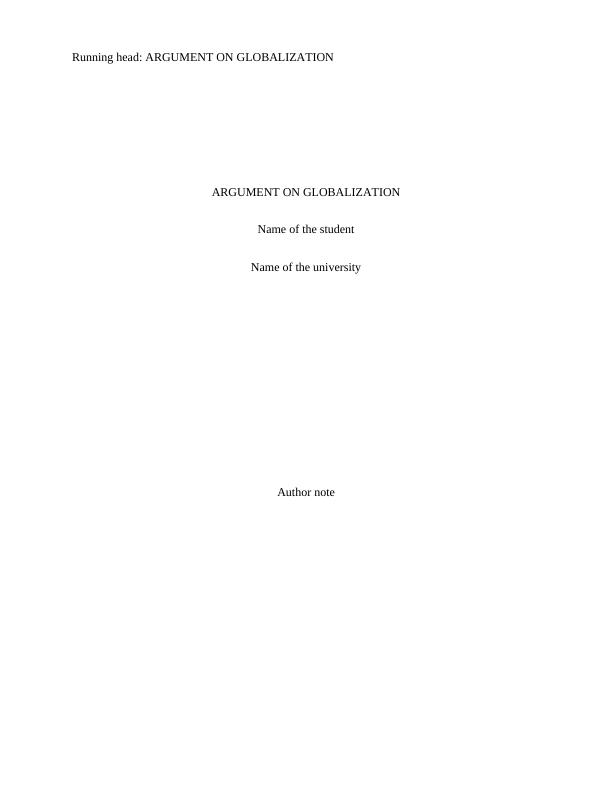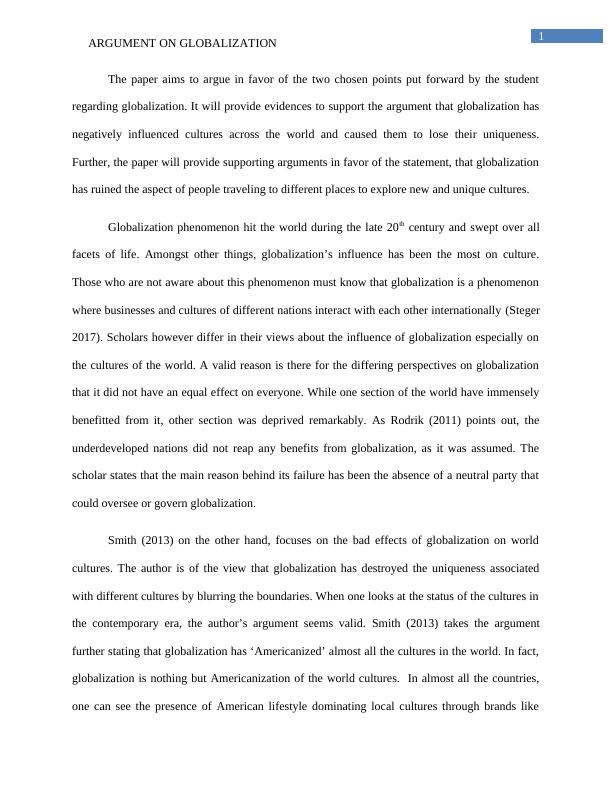Argument on Globalization
5 Pages1090 Words82 Views
Added on 2023-06-03
About This Document
This paper argues in favor of the negative effects of globalization on cultures and travel. It provides evidence to support the argument that globalization has caused cultures to lose their uniqueness and has ruined the aspect of people traveling to explore new cultures. The paper also discusses the rise of negative nationalism as a result of globalization.
Argument on Globalization
Added on 2023-06-03
ShareRelated Documents
End of preview
Want to access all the pages? Upload your documents or become a member.
Globalisation – A Threat to National Sovereignty
|6
|1271
|445
Native Americans and Religion
|5
|1040
|317
Assignment on Study Tour in USA
|10
|2622
|77
Influence of Beethoven's Ninth Symphony on Romantic Period Composers
|12
|4015
|96


